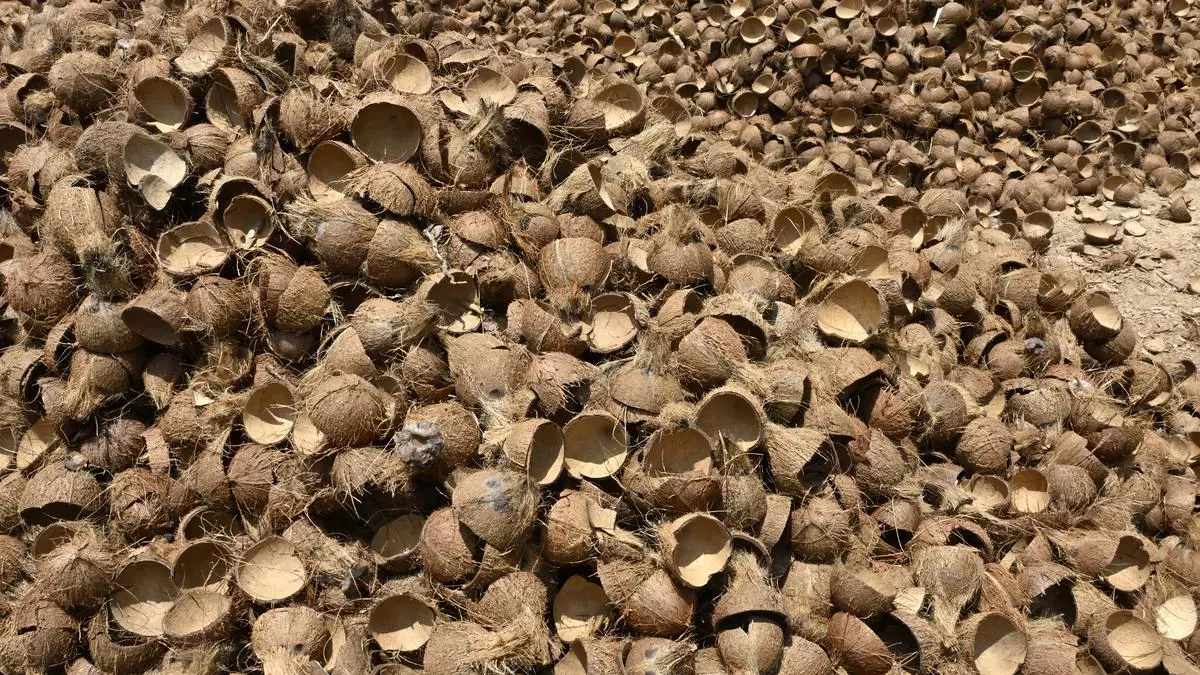Scarcity of coconut shells may hit activated carbon exports
India’s activated carbon exports are likely to face a bumpy ride in the wake of shortage of coconut shells and higher freight cost triggered by the Red Sea crisis. The Red Sea crisis has led to delayed delivery of cargo by around 30 days to Europe and the US markets due to diversion of ships via Cape of Good Hope.
India is a major producer and exporter of activated carbon which is mainly used for gold extraction and purification of water and air.
Insufficient coconut shells, the primary raw material for activated carbon, have stoked charcoal prices, which reached ₹45,000 per tonne from ₹27,000 in January, causing the production cost to surge by 30 per cent. Increased demand for carbon in the gold mining industry has also squeezed the supply of raw materials.
Problem for Lanka too
Joshy Joseph, Director of IndCarb, the Palakkad-based manufacturer and exporter of coconut shell-based steam activated carbon, said coconut shell shortage is posing a concern not only for India but also for Sri Lanka, the leading producer. He attributed the reasons for the shortage to declining raw nut production due to climate change in major producing countries and dispatch of ball coconuts in bulk to North India for making various value-added products.
India exported about 141,861 tonnes of activated carbon in 2023 valued at $242 million with the United States accounting for over 16 per cent. Other significant exporters are Philippines 62,724 tonnes followed by Sri Lanka with 54,069 tonnes. The global market is projected to reach $7 billion by 2030 from the present $4.4 billion
Informed sources said that the country’s coconut product exports have gained significantly on the back of activated carbon shipments. Out of the ₹3,469 crore exports of coconut products in FY24, around 60-70 per cent is activated carbon shipments. The declining production of raw nuts due to untimely monsoon and drought has hit the availability of coconut shells. The rise in the number of activated carbon manufacturing units is another reason for declining availability of raw materials to meet the production requirement.
According to Joseph, the coconut shell charcoal industry has shifted towards green technology purusing a cleaner method of production following the National Green Tribunal order. The elevated pit technology for making charcoal has marked a new era of eco-friendly production.
To encourage adoption of clean technology in the coconut shell charcoal industry, the Coconut Development Board is offering project-based financial assistance of 25 per cent of the total project cost for green ventures.
